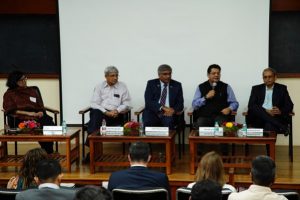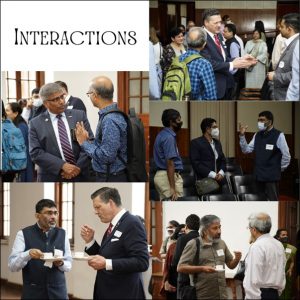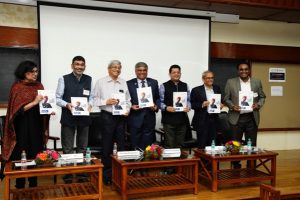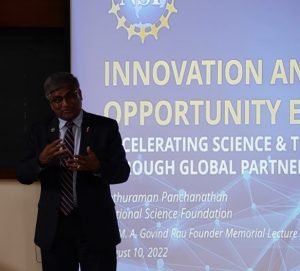
When US President Joseph R Biden and Indian Prime Minister Narendra Modi met at the White House on 24 September 2021, they decided that ‘the United States and India must continue and expand their partnership in new domains and many areas of critical and emerging technology – space, cyber, health security, semiconductors, AI, 5G, 6G and future generation telecommunications technology, and Blockchain, that will define innovation processes, and the economic and security landscape of the next century.’ They launched the Initiative on Critical and Emerging Technologies (iCET) at their meeting on 24 May 2022 in Tokyo, which would focus on areas such as artificial intelligence (AI), semiconductors, quantum computing, 5G and 6G, biotechnology, and space. For a successful collaboration and realisation of target outcomes under this Initiative, it is critical to have a trained workforce.
In this context, an Indo-U.S. Visioning Workshop on ‘Developing a Diverse, Robust AI Workforce’ was organised by the Indo-U.S. Science & Technology Forum (IUSSTF) in collaboration with itihaasa Research and Digital (itihaasa) and the Indian Institute of Science (IISc), under the U.S.-India Artificial Intelligence (USIAI) Initiative. The event was arranged at IISc during 10–11 August 2022.
Nandini Kannan (Executive Director, IUSSTF, and Moderator for the workshop) explained the genesis of the workshop. The focus would be on ways in which a more diverse, robust AI workforce that cuts across all sectors of the economy, can be built. The workshop would address challenges, priorities, synergies, roadmap for solutions, public–private partnerships, industry–academia associations, and Indo–US collaborations. Participants from both the countries engaged in lively conversations.

In the PROVOCATEUR session, four provocateurs—Sethuraman Panchanathan (Director, National Science Foundation (NSF)), Sandeep Verma (Secretary, Science and Engineering Research Board (SERB)), Kris Gopalakrishnan (Chairman, Axilor Ventures), and Govindan Rangarajan (Director, IISc)—shared their experiences and put forth thought-provoking questions to the audience. A discussion followed.
The EXEMPLARS session highlighted successful models of training and programme development in artificial intelligence and data science. The speakers were Ani Adhikari from the University of California, Berkeley, Rajesh Sundaresan from IISc, Vipin Chaudhary from Case Western Reserve University, Andrew Thangaraj from the Indian Institute of Technology Madras, Rohini Srivathsa from Microsoft India, and Krishnan Narayanan and N Dayasindhu from itihaasa.
The themes for the BREAKOUT sessions included (i) AI, Data Science training for industry 4.0; (ii) Undergraduate Level AI Programme and Curriculum Development; (iii) Graduate Level Programmes – Computer Science focussed; and (iv) Graduate Level Programmes – Other Engineering/Research focussed. The challenges were identified, and solutions and recommendations were proposed.

REPORT LAUNCH: From left to right: Nandini Kannan, N Dayasindhu, Govindan Rangarajan, Sethuraman Panchanathan, Sandeep Verma, Kris Gopalakrishnan, and Krishnan Narayanan.
The workshop agenda also incorporated the launch of a report – ‘The AI & Data Science Workforce: The State of Higher Education in India and an Overview of the U.S. Landscape’, and the first Dr M A Govinda Rau Founder Memorial Lecture, delivered by Panchanathan.

In his talk, Panchanathan emphasised that as innovation can be anywhere, opportunities should be everywhere. While describing the work of the National Science Foundation, he brought out the importance of inclusion, diversity, accelerating scientific frontiers, building resilient futures, societal impact as part of technological solutions, and collaboration between India and the US.
